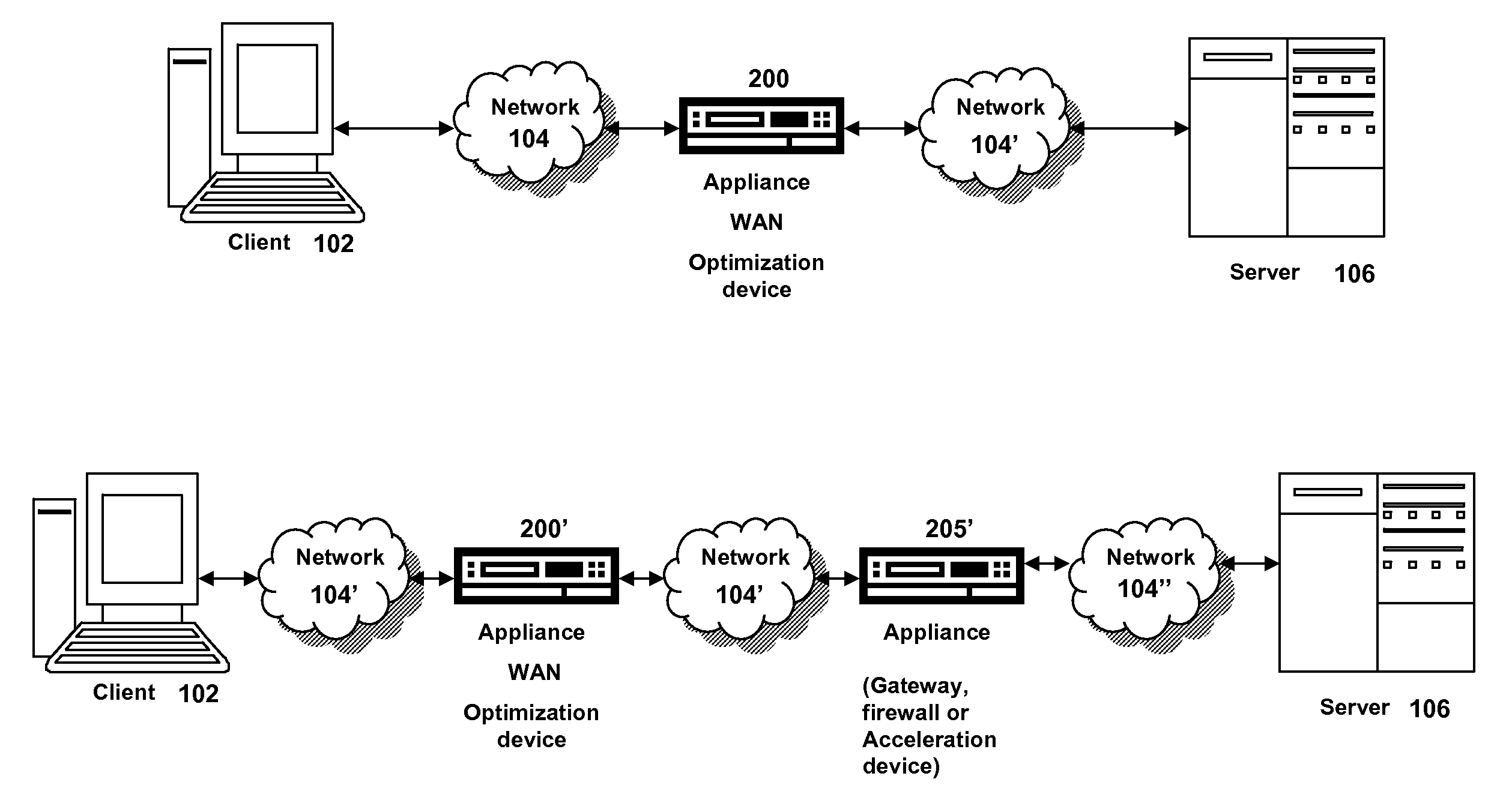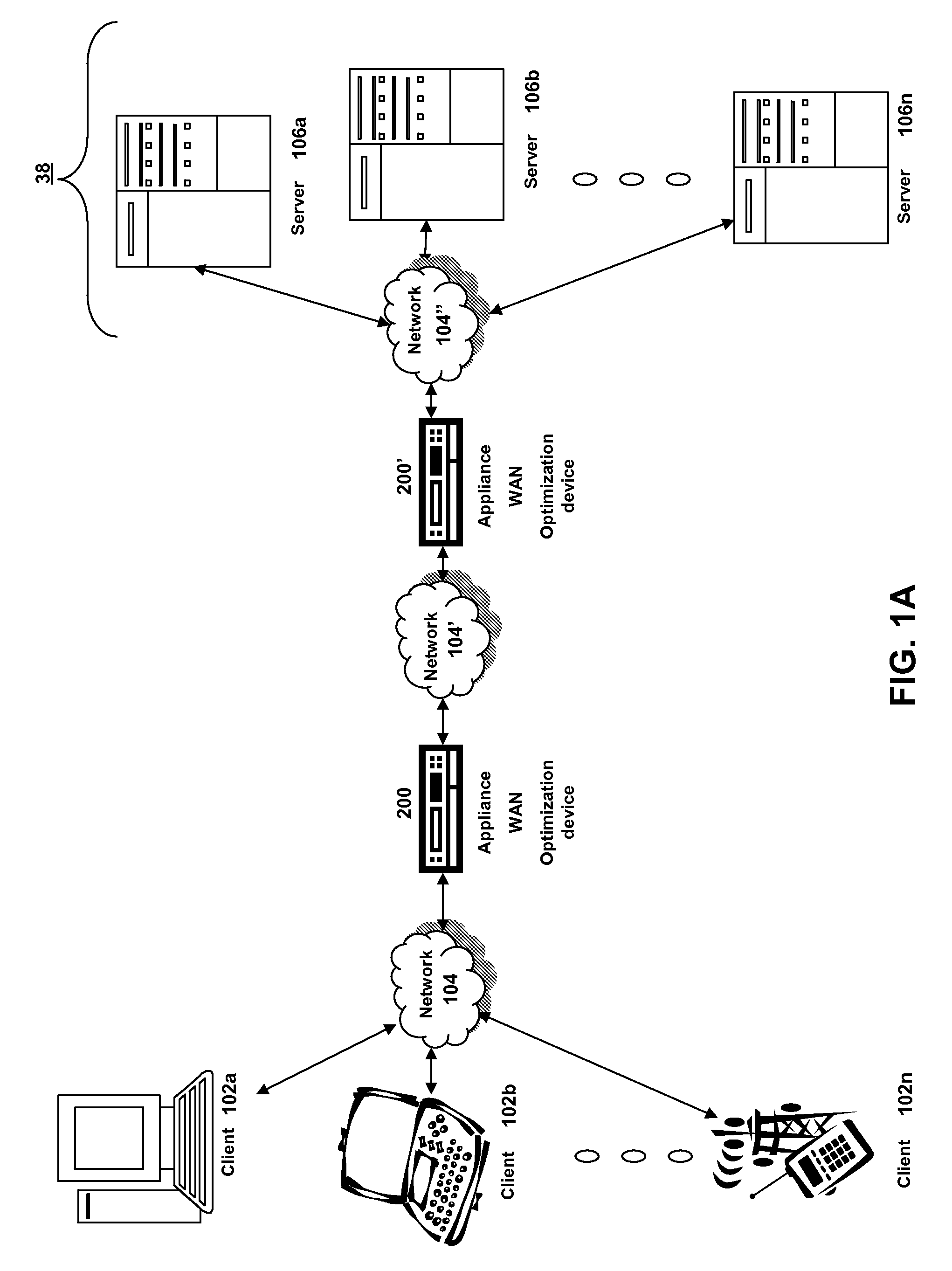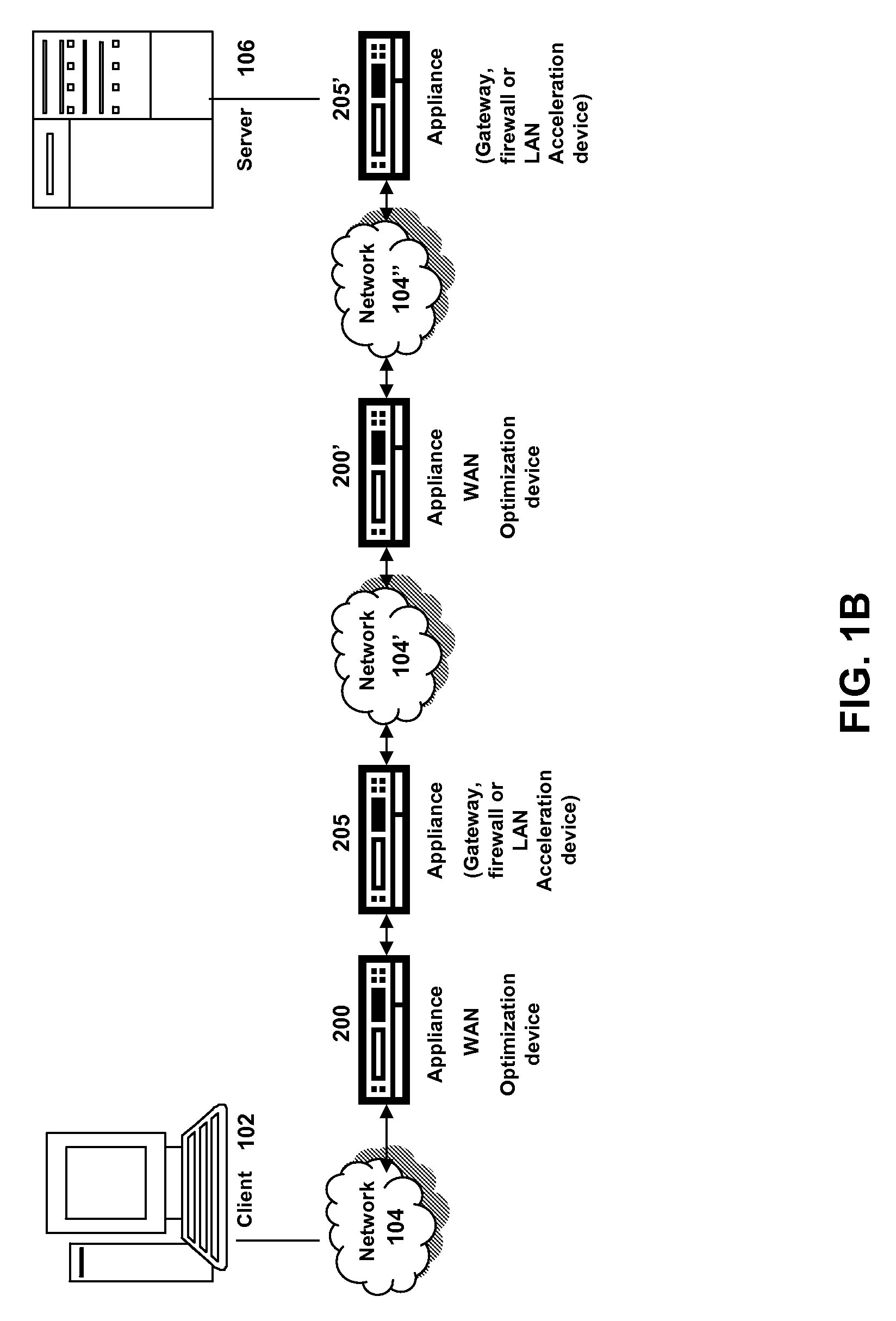Systems and methods of freshening and prefreshening a DNS cache
- Summary
- Abstract
- Description
- Claims
- Application Information
AI Technical Summary
Benefits of technology
Problems solved by technology
Method used
Image
Examples
Embodiment Construction
[0186]For purposes of reading the description of the various embodiments of the present invention below, the following descriptions of the sections of the specification and their respective contents may be helpful:[0187]Section A describes a network environment and computing environment useful for practicing an embodiment of the present invention;[0188]Section B describes embodiments of a system and appliance architecture for accelerating delivery of a computing environment to a remote user;[0189]Section C describes embodiments of a client agent for accelerating communications between a client and a server;[0190]Section D describes embodiments of systems and methods for a multiple-tier cache and indexing system;[0191]Section E describes embodiments of systems and methods for providing security and reliability techniques in proxying connections;[0192]Section F describes embodiments of systems and methods of parallel revalidation of cached objects;[0193]Section G describes embodiments...
PUM
 Login to View More
Login to View More Abstract
Description
Claims
Application Information
 Login to View More
Login to View More - R&D
- Intellectual Property
- Life Sciences
- Materials
- Tech Scout
- Unparalleled Data Quality
- Higher Quality Content
- 60% Fewer Hallucinations
Browse by: Latest US Patents, China's latest patents, Technical Efficacy Thesaurus, Application Domain, Technology Topic, Popular Technical Reports.
© 2025 PatSnap. All rights reserved.Legal|Privacy policy|Modern Slavery Act Transparency Statement|Sitemap|About US| Contact US: help@patsnap.com



